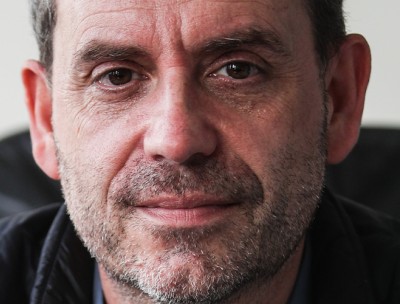Cities, local and regional governments and human rights
The role of local government in delivering States’ human rights obligations has never been more important.
MICHELLE BACHELET, UN HIGH COMMISSIONER FOR HUMAN RIGHTS, 9TH WORLD HUMAN RIGHTS CITIES FORUM, 30 SEPTEMBER 2019
Local governments at the forefront of bringing human rights to all
Government obligations under international human rights law extend to all levels and branches. While national and regional governments too have important roles to play in the promotion and protection of human rights, local governments are at the forefront of bringing human rights to all.
Local governments are in contact with people in the most direct way. They receive demands, claims, and complaints from residents, while developing and enacting policies that directly affect lives. The COVID-19 pandemic highlighted their critical role in addressing the political and social challenges of the pandemic. The global trend towards decentralization only further shows the role of local governments to assess the needs of constituents and deliver on human rights through local laws, policies and programs.
OHCHR’s work with local governments
In his report Our Common Agenda, the United Nations Secretary-General highlighted the need for an "inclusive multilateralism" that includes cities, local and regional governments.
OHCHR has been engaging with local and regional governments in protecting and promoting human rights for many years. In 2019, OHCHR organized, with the support of the United Cities and Local Governments (UCLG), a large-scale networking event of regional and local governments. This consultation was an unprecedented opportunity to discuss human rights challenges and share experience among local governments from across the globe, as well as human rights experts and civil society organizations. Read a summary of this event (PDF)
As a result, OHCHR and UCLG have strengthened their cooperation through a letter of agreement including on the following areas:
- Facilitating exchanges and cooperation between the UN, OHCHR, human rights mechanisms and local governments;
- Encouraging local governments in adopting a human rights based approach to their work;
- Promoting promising local human rights practices and building capacity of local authorities and other local actors on human rights.
Through its field presences, OHCHR has been directly engaging with local and regional governments in multiple ways. For instance, OHCHR Mexico developed a methodology for the drafting of human rights assessments and plans at the local level, requiring the participation of the local executive, legislative and judicial powers as well as local human rights institutions, academia and CSOs.
In Karamoja, Uganda, OHCHR supported the application of rights-based and gender-sensitive programming, planning, and budgeting by the local government. This led to the Moroto District local government producing a declaration adopting a human rights-based approach to programming as best practice within the Moroto District, which has been replicated by district planners and other heads of departments.
OHCHR has mapped promising practices at local level on the right to health of migrants in Europe. Learn more about the study “Promising local practices for the enjoyment of the right to health by migrants"
Human Rights Cities
In using the term "Human Rights Cities" many local governments have recognized their responsibilities under international human rights law and developed their own human rights agendas to promote the human rights of their constituents.
Despite political and financial challenges, local governments have put in place laws, public policies and innovative initiatives to implement human rights. As cities are piloting new approaches, new spaces of dialogue are critical to allow for an exchange of experience among local governments and peer-to-peer learning.
The World Human Rights Cities Forum (WHRCF) is one of the most relevant events for bringing together local government officials with civil society organizations and other international actors to establish and implement systems to ensure human rights in the daily lives of citizens. It is held annually in Gwangju, Republic of Korea, and organized by the Gwangju city, with sponsorship from UN Human Rights.
UN Human Rights is also collaborating with the European Union Agency for Fundamental Rights (FRA) on its work with human rights cities and its framework for becoming and functioning as a human rights city in the European Union.
Urbanization
Urbanization is one of the most important global trends of the 21st century. Today more than half of the world’s population lives in urban areas, and by 2030 this is expected to rise to 60 percent. To ensure that urbanization processes maintain and respect human rights, the 2030 Agenda for Sustainable Development Goal 11 calls for governments to commit to "make cities and human settlements inclusive, safe, resilient and sustainable."
Cities, and local and regional governments are at the forefront of delivering on the development and urban agenda. Human rights are key to advancing and developing an urbanization that is sustainable and socially inclusive, that promotes equality, combats discrimination in all its forms and empowers individuals and communities.
Learn more about OHCHR's work on urbanization and human rights
Latest reports and publications
20 March 2024
15 May 2018
ECOSOC report on the linkages between urbanization and human rights
2019
Study on “Promising local practices for the enjoyment of the right to health by migrants”
Also available in French
Related material
Promising practices of Local governments to prevent violence against women
Promising practices at the local level to protect human rights in the context of climate change
Latest statements
7 October 2021
11th World Human Rights Cities Forum7 October 2020
10th World Human Rights Cities Forum30 September 2019
9th World Human Rights Cities ForumVideos
19 August 2022
Local governments for human rights
Watch on YouTube
23 August 2022
Mayors’ pledges for protecting Human Rights
Watch on YouTube
External links
European Union Agency for Fundamental Rights World Human Rights Cities Forum (WHRCF) United Cities and Local Governments (UCLG) UCLG Committee on Social Inclusion, Participatory Democracy and Human Rights (UCLG-CSIPDHR) International Centre for the Promotion of Human Rights at the Local and Regional Levels
Note: OHCHR is not responsible for the contents of external links.
